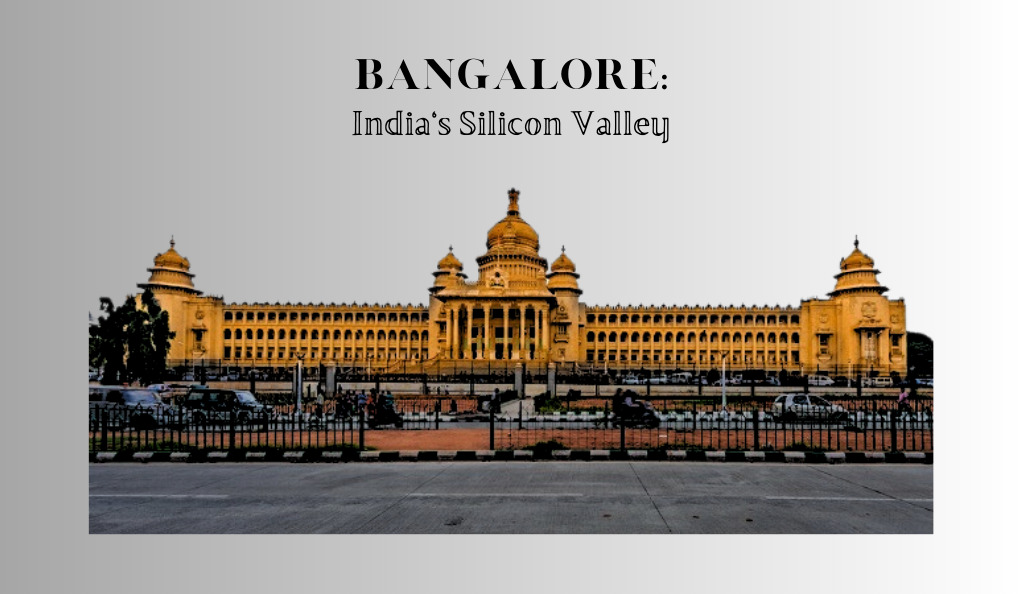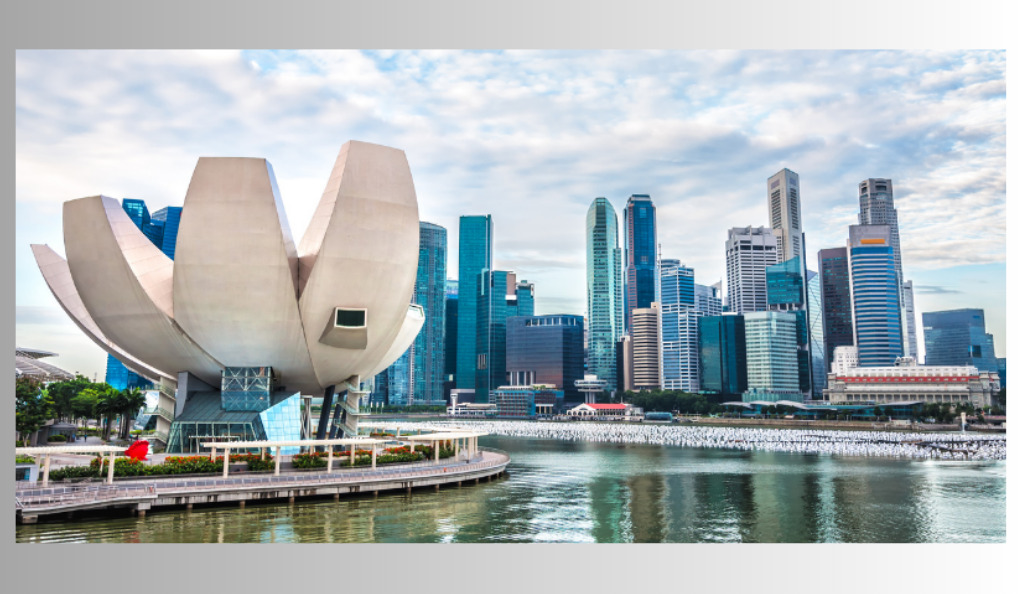Beyond Silicon Valley: Emerging Tech Hubs and the Startups That Thrive There
Keep your finger on the pulse of the tech industry with BStash.io. From startup success stories and industry news to insights from tech leaders and innovators, we cover the business side of technology. Explore mergers and acquisitions, venture capital, market trends, and the entrepreneurial spirit that drives the tech world forward. Stay informed and inspired with our comprehensive coverage of the tech industry and startup ecosystem.
The Changing Landscape of Tech Hubs
For decades, Silicon Valley has been synonymous with technological innovation. Its unique ecosystem, brimming with venture capitalists, tech giants, and a culture of innovation, has made it the dream destination for tech enthusiasts. However, the 21st century has seen a shift. As technology becomes more accessible and the digital revolution touches every corner of the globe, new tech hubs are sprouting, challenging the dominance of Silicon Valley. These emerging hubs, from Asia to Europe, are not just mimicking the Valley but are carving out their own identities, fueled by local challenges, cultures, and opportunities.
Bangalore: India’s Silicon Valley

Bangalore, the capital city of Karnataka, India, has rapidly transformed from being known for its gardens and pleasant climate to a bustling tech hub. The city’s metamorphosis began in the late 90s and early 2000s when global IT companies set up shop, attracted by the vast pool of engineering talent and cost advantages. Today, it’s not just the IT services that Bangalore is known for. Startups like Flipkart, Ola, and Swiggy have showcased the city’s potential to produce world-class products and services. With numerous tech parks, coworking spaces, and a young, dynamic workforce, Bangalore’s tech scene is vibrant and shows no signs of slowing down.
Berlin: Europe’s Startup Capital
Berlin, with its rich history and vibrant culture, might seem an unlikely candidate for a tech hub. Yet, the city has emerged as Europe’s startup capital. The relatively low cost of living, combined with a creative spirit, has made Berlin attractive to innovators. Startups like SoundCloud, N26, and Zalando have their roots in this city. Moreover, Berlin’s open culture, with a mix of artists, musicians, and techies, fosters a unique environment where ideas flourish. The city also hosts numerous tech events, drawing entrepreneurs from all over the world, further cementing its position as a leading tech hub.
Tel Aviv: Innovation in the Middle East
Nestled on the Mediterranean coast, Tel Aviv is a city of contrasts. It seamlessly blends the ancient with the modern. In recent years, Tel Aviv has gained prominence as a leading tech hub. The city boasts a high concentration of startups, supported by a robust ecosystem of accelerators, incubators, and venture capitalists. Companies like Waze, Mobileye, and Fiverr have put Tel Aviv on the global tech map. The city’s success can be attributed to its culture of innovation, world-class universities, and the mandatory military service, which often exposes young Israelis to advanced technologies.
Toronto: North America’s Rising Star
While the US has Silicon Valley, Canada has Toronto. Over the past decade, Toronto has emerged as a formidable tech hub. The city benefits from Canada’s liberal immigration policies, attracting top talent from around the world. Startups like Shopify, Kik, and Wattpad have put Toronto on the tech radar. The city’s universities, such as the University of Toronto and Ryerson University, provide a steady stream of skilled graduates, fueling the tech industry. Additionally, government initiatives and investments in AI research have given Toronto a competitive edge.
Singapore: Asia’s Tech Powerhouse

Singapore, a tiny city-state, has big tech ambitions. Its strategic location, serving as a gateway to Asia, combined with a business-friendly environment, has made it a magnet for tech startups. The government’s proactive approach, offering grants, tax incentives, and creating tech parks, has nurtured a thriving tech ecosystem. Companies like Grab, Razer, and Sea Group are shining examples of Singapore’s tech prowess. With its focus on innovation and a vision to become a Smart Nation, Singapore is poised to remain a dominant tech player in the region.
Challenges and Opportunities in New Tech Hubs
Emerging tech hubs, while offering a plethora of opportunities, come with their own set of challenges. Cultural nuances, regulatory landscapes, and local market dynamics can vary significantly from one region to another. Startups need to navigate these challenges while leveraging the unique advantages each hub offers. For instance, while Berlin offers a creative environment, it might lack the vast consumer market that Bangalore provides. Conversely, while Bangalore offers a massive consumer base, startups might face bureaucratic hurdles. Understanding and adapting to these local nuances is crucial for success.
The Role of Government and Infrastructure
The rise of any tech hub is not just a result of private enterprise but often involves significant government intervention. Governments around the world have recognized the economic potential of nurturing a tech ecosystem. From offering tax breaks and grants to setting up specialized tech zones, governments play a pivotal role. Infrastructure, both physical and digital, is another critical factor. Robust internet connectivity, transportation, and amenities can significantly boost a city’s appeal as a tech hub. Cities like Singapore and Toronto have benefited immensely from proactive government policies and world-class infrastructure.
The Future: Diversification of Tech Hubs
The future of tech is not concentrated in one region or city. As the digital revolution continues, more cities will join the ranks of leading tech hubs. This diversification is beneficial. It leads to a cross-pollination of ideas, solutions tailored to local challenges, and a more inclusive tech industry. Cities like Sao Paulo, Nairobi, and Kuala Lumpur are already showing signs of a burgeoning tech scene. With the right mix of talent, capital, and infrastructure, there’s no limit to where the next big tech innovation will come from.
Conclusion
The global tech landscape is undergoing a renaissance. No longer is innovation confined to a few select locations. From Berlin to Bangalore, Tel Aviv to Toronto, new tech hubs are emerging, each with its own flavor and strengths. As startups continue to thrive in these regions, they not only contribute to their local economies but also enrich the global tech tapestry. The future is bright, diverse, and promising.
FAQs
The growth of technology and the internet has democratized innovation. With access to resources and a global market, startups can now thrive anywhere. Additionally, certain regions offer unique advantages, such as lower operational costs or specialized talent pools.
Many governments offer tax incentives, grants, and training programs to attract and nurture startups. They also invest in infrastructure and create tech parks to foster a conducive environment for tech companies.
While tech is a broad field, certain hubs specialize in specific sectors. For instance, Tel Aviv is known for its cybersecurity startups, while Singapore has a strong fintech scene.
Cultural nuances can affect business operations, from communication styles to consumer behavior. Startups need to be culturally sensitive and adaptable to succeed in different regions.
While it’s hard to predict with certainty, cities like Sao Paulo, Nairobi, and Kuala Lumpur are showing promising signs of becoming the next big tech hubs.
At bstash.io, our mission is to offer impartial and dependable information on cryptocurrency, finance, trading, and stocks. Nevertheless, we are unable to offer financial guidance and encourage users to conduct their own research and thorough investigations.
Read MoreSilicon Valley has long been the tech world’s crown jewel. But now, cities from across the globe are emerging as formidable tech hubs. Discover these new epicenters of innovation and the startups that are setting them alight.






